
For the first municipal elections in Tunisia after the revolution: no participation (only about 34% of the population entitled voted against 68,4% in the 2014 elections), young people on the sidelines, women on the front lines and civic lists, these are the keywords in the aftermath of the vote. Elections in silence. Even the press has deserted its role or perhaps sometimes silence is eloquent. Deafening.
The lack of participation – confirmed prediction – strikes but does not surprise, especially the abstentionism of young people: a very young country – the average age of nearly thirty years – who does not think of young people, how to ask for their vote? People were resigned, disheartened and disinterested before the vote, at least for the majority. Above all, young people are far from politics. However, a significant minority of the population is very active and has not forgotten the legacy of associations and civil commitment that has deep roots in Tunisia.
- © Tawfiq Omrane - "Elettori votano - anche i candidati" - Electors vote, as well as candidates"
- © Tawfiq Omrane - "La campagna elettorale: prima e dopo" - "La campagne électorale: avant et après" - electoral campaign: before and after"
- © Tawfiq Omrane "quando un partito chiede aiuto a un'indipendente" - "Quand un parti demande de l'aide à un indépendant" - "when a party ask for help to an indipendent"
We will remember these elections as those of the explosion of the independent civic lists: from the parties, from the system. They are lay formations, with a strong feminine presence, very active, linked to programs not to ideas according to the logic of doing rather than telling and promising. The emergency is called labor, the origin of all social ills, linked – more than to the poor recovery of the country and to the conjuncture – to the corruption and to a cumbersome machine both at the political and administrative level. The religious party Ennahdha (of Rached Gannouchi) seemed to triumph at first. But this has not been the case, but populism in the Mediterranean countries certainly holds its own. Curious that in a climate of distrust you give credit to the party that in the aftermath of the 2011 revolution had won the election using the workhorse. Drawback of Nida Tounes, outgoing party of government (of the Repblic president Béji Caïd Essebsi, which won the legislative and presidential election in 2014) and we note the lack of presence of historical parties of the left.

The feminine presence certainly emerges in the foreground, also due to the law that requires 50% of candidates to be women, strongly supported by the religious party: it could be a woman, it is Souad Abderrahim, 54, pharmacist and former political prisoner, the mayor of Tunis and it would be the first time. The issue is not so much in number but in the women’s proposal and in a certain exploitation of women as an image of the renewal of some parties.

The civic lists are the real news. Leading for example in the international district, the northern suburbs of Tunis, the Marsa, the list “The Marsa change” that greatly distances the religious party. The figure which, in my opinion, must worry the most is the marginalization of young people, whose voice has been forgotten. Women are therefore invited to abandon the logic of confrontation on quotas and to promote the country’s future by focusing on the resources of tomorrow.
Ilaria Guidantoni, May 7, 2018
 © Tawfiq Omrane – “Municipali… e dopo: “vi ho dato mio voto, e voi che cosa mi date?” – “Local election… and after: “I gave you my voice, and you what are you going to give me?”
© Tawfiq Omrane – “Municipali… e dopo: “vi ho dato mio voto, e voi che cosa mi date?” – “Local election… and after: “I gave you my voice, and you what are you going to give me?”


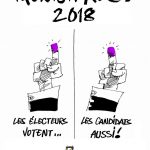

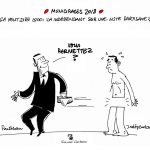
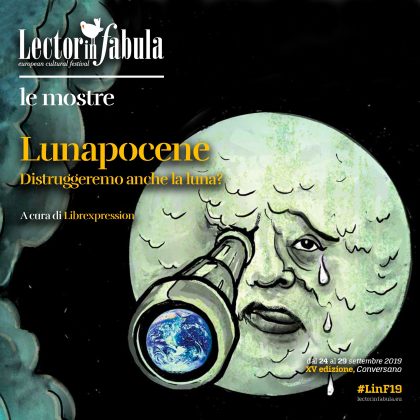
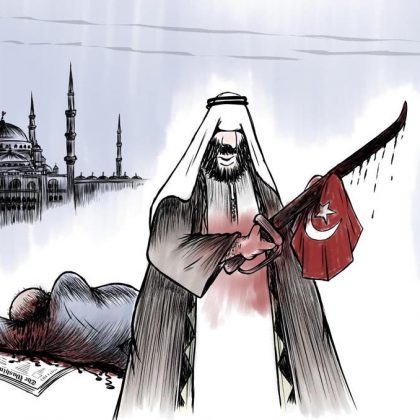

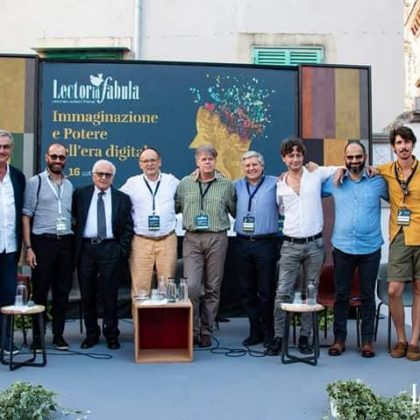
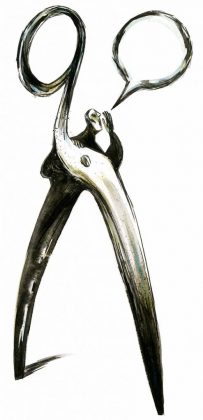
Comments
Leslie Lescavage
With thanks! Valuable information!
Louise Heverin
With thanks! Valuable information!